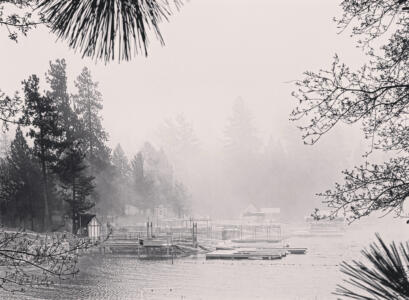
A good writer friend calls me a “completionist” because I insist on finishing a piece of writing even when I know it isn’t any good, whereas she is able to abandon work as soon as she senses it stinks. She is right about me; I can’t bring myself to toss something before it has a clear ending.
This completionist compulsion is in full bloom now as I prepare to die. Because I’ve known about my imminent death for a couple of years now, I’ve had plenty of time to prepare for it, to try to tie up the loose ends of my life. Initially this meant making sure I had an up-to-date will. It meant marrying the man I adore who I’d been living with for over twenty years. It meant having candid conversations with my son, sisters, and dear friends. It meant making sure Paul had all my passwords. Much of that flurry of activity happened almost two years ago, shortly after my diagnosis, and I had the illusion back then that I might move on and devote the rest of my days to thinking and remembering and dreaming while listening to music or books on tape.
What a surprise it was to see how life carried on and so did I. Those early efforts barely scratched the surface of wrapping things up. There were so many old friends, dear friends, I still needed to talk to. There was a novel-in-progress I needed to finish, a newsletter to write, two new books coming out that I needed to promote as well as I could. There were also household projects to complete, and Paul and I needed to spend as much time together as we could. I wanted to devour the world, do it all, even with the end in sight.
When I was in college a group of students formed a band called Entropy that played at many campus events. It was my introduction to the concept of entropy (I had not, to my chagrin, studied physics). But the concept—which for a layperson means gradual decline into disorder—took root in my consciousness and has colored much about how I have seen the world since then. It is the natural order of things to sink into decline, something I’m reminded of every time I walk down the road and see several sagging moss-covered buildings being reclaimed by the earth. Whoever owns them has failed to maintain them, and there will soon be little sign of them at all. It is also in the nature of living things to die and disappear. Much of our lives are devoted to pushing back against such entropy—shoring up buildings and our own bodies against their inevitable collapse. For a while it works, but in the end it’s a futile task.
When I was teaching, I emphasized—and pardon me for repeating myself, I know I have said this before—the importance of accepting uncertainty as part of the writing process. Keats wrote about this in a letter to a friend: accepting “negative capability” means setting aside “uncertainties, mysteries, doubts, without any irritable reaching after fact and reason.” This is, of course, difficult to do, and one can’t do it in writing without doing it in life. When I examine my efforts to wrap up the loose ends of my life, I see that I’ve failed to fully accept negative capability. My efforts seem to be an irritable reaching for certainty and a neat conclusion to something—a human life—that will never be neat. Wrapping things up will not overcome the entropy of my own life, nor will it alter the nature of what that life has been.
What is a life, after all? It is not a novel. It is not an artifact. It is an energetic enterprise in which atoms cohere for a while before the organism they have been part of dies and decomposes, and the atoms take their energy elsewhere. If I had died suddenly in a car accident and had no time for goodbyes or clearing my inbox, would it make a difference in the life I have led? I doubt it.
Trying to wrap up my life in its final weeks has left me busier than I have possibly ever been. In addition to trying to finish the new novel in the next week, I have a list of letters and emails to write, daily Zooms or visits, a newsletter and blog to compose, a “death event” to plan, etc. Fortunately, Paul and I will going away for a few days in early January to take a deep breath together.
Part of me would like to be able to step back and say no to everything, but each time I consider that I realize I don’t really want to. I will die as I have lived, saying yes to everything, trying to bring closure despite knowing that neat endings are an illusion.
See you next week.
Love,
Cai
My good friend and terrific writer, Aimee Liu, has offered this moving reflection, “Dreams After Death,” about her mother’s death. I feel so simpatico with the ideas she discusses here.
Dreams After Death

The subconscious has its own way of saying goodbye
My mother died eleven months ago, but instead of waning, my dreams about her — or around her — seem to be multiplying. Most of these nocturnal encounters skip into oblivion as soon as I wake. When a dream is particularly vivid, though, I try to scrawl its contours in my dream journal.
Still half asleep in the dark, I’ll write blind before the movie in my mind flickers out. And somehow, these half-conscious scribbles are surprisingly decipherable. Like hieroglyphics, they provide just enough imagery — stairs, foliage, faces, signs — to bring the mental story right back to me. In this way, the recent dreams involving my mother have re-emerged like prose-poems from the subconscious — or some other metaphysical zone. Consider this one:
I’m back in my childhood neighborhood with Mom as my guide, photographing all the old houses before they’re gone. She reminds me who lived in which glass house. The O’Neils. The Steinmetzes. The Bigelows and Barkentins. All now gone, though she is here. We trudge through the woods, needing to catch up, to explore, to remember where the Amusement Park is before it, too, is gone.
We never had an easy relationship, my mother and me. I moved 3,000 miles away from her when I was 26, and for the next four decades I visited only once or twice a year. I phoned each week, but my mother did most of the talking and rarely asked questions, in part because her hearing was failing and she refused to get hearing aids until she was in her nineties. She adapted to email, which allowed more information to flow, but our interactions were what she liked to call “congenial.” Friendly and careful, but not exactly intimate.
We loved each other, but we had very different ways of loving. Hers brooked no criticism, and mine hungered for honesty and trust. That held us at an impasse, loving each other across a chasm of frustrated longing — on both our parts.
Now I’m forever late and racing to get to her dream house. Searching for the right subway. Chasing the boat or train. Trying to remember the route to the airport before my plane takes off. Not hard to interpret these, since circumstance prevented me from seeing my mother for the last four months of her life. The pandemic roared back through her nursing home last January, and none of her family could get to her at the very end. She had just turned 101.
Years ago, when the first of my mother’s close friends died, another acquaintance commented that my relationship with this quasi-godmother would remain the same. What he meant was that I lived so far away physically, I hadn’t seen her since we were young, so I was already relating to her almost entirely through the realm of memory and stories. And death could take nothing from her in that realm. My mother’s friend was still just as present as ever to me.
This is true of my mother now, too. Except that she lives on with me, in me, in a way that finally feels both trusting and intimate. I no longer fear triggering her unpredictable temper. I have the patience in my dreams to listen and appreciate her many passions and curiosities. And we can agree that we’ve always understood and cared for each other more than we could say.
My favorite dream after death came to me just about nine months after my mother died. It fills me with hope. And love. And healing. This:
My brother and I are clearing out Mom’s house, and she is with us. But she’s old. When I step inside, she wanders off. We give chase, and I find her, but she shrinks to the size of a moth. I try to hold her little body, but I drop her, and she hits her head on the curb. I feel her heart and hold her against my chest, terrified, trying not to crush her. At last she stirs. I open my hands, and she flies away, free.
More from Aimee about death within life:
A Funeral on Pandemic Eve
Was our grief an omen?authoraimeeliu.medium.com
Add Comment